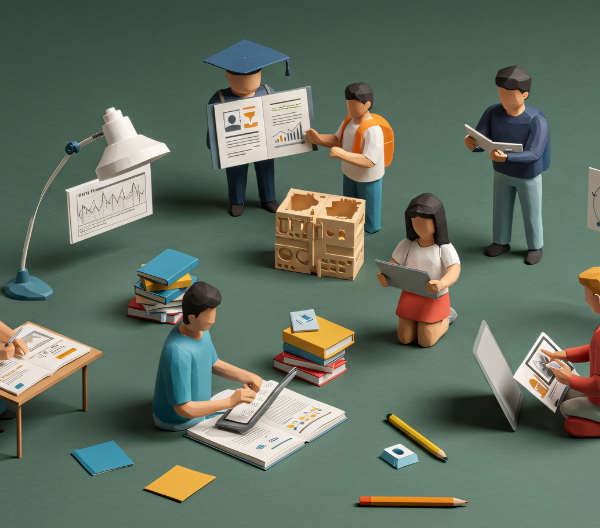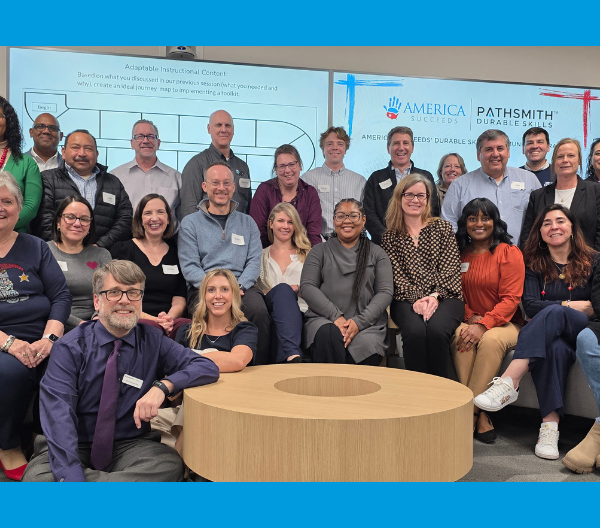Imagine walking into a classroom where the focus isn’t on memorizing dates for a history test, but on mastering real-world skills like critical thinking, collaboration, and leadership. This isn’t a futuristic scenario; it’s happening right now in four pioneering schools across the United States.
Our visits to Bostonia Global, Gibson Ek High School, Building 21 Philadelphia, and GO CAPS Monett have revealed transformative educational practices that redefine success beyond traditional metrics.
The findings from Phase 1 of the Research Practice Collaborative are crucial as we uncover practices that prepare students for the complexities of the modern world.
Here’s a snapshot of what we uncovered so far:
1. A New Educational Paradigm: Competencies over Traditional Knowledge
The educational landscape is shifting. At the schools we visited, there’s a strong focus on developing a comprehensive set of competencies rather than merely imparting textbook knowledge. This approach isn’t just about making adjustments; it’s about redefining the essence of educational success.
In Practice:
- Bostonia Global integrates core competencies into project-based courses and mentorships, supported by a digital dashboard that enables ongoing coaching and reflective learning.
- Gibson Ek High School adopts the Big Picture learning framework, emphasizing interest-driven internships and personal projects with robust digital tracking.
- Building 21 Philadelphia and GO CAPS Monett weave real-world applications and professional engagements into daily learning, ensuring that students not only acquire but master the skills needed for future success.
2. The Crucial Role of Documenting and Discussing Skills
One of the most effective practices we’ve identified is the intentional documentation of and continuous conversation about skills. In addition to knowing how their skills are progressing, students in these schools are actively involved in steering their learning journey, supported by technology and ongoing dialogue.
How It’s Done:
- Digital Dashboards facilitate real-time tracking and discussions on competencies at Bostonia Global and Gibson Ek.
- Regular Reflections at Building 21 Philadelphia and ongoing informal feedback at GO CAPS Monett enrich the learning process, making skill development a clear focus.
3. Practices That Propel Skill Development
Our research highlights several core practices that significantly enhance skill building, including internships, client projects, and project-based learning — all tailored to harness students’ interests.
Impactful Strategies:
- Internships and Client Projects at Gibson Ek and GO CAPS Monett offer authentic, hands-on experiences that cultivate essential problem-solving, communication, and collaborative skills.
- Project-Based Learning at Bostonia Global and Building 21 Philadelphia engages students in meaningful projects that require a broad application of interdisciplinary skills.
Conclusion: Preparing for a Transformative Future
The insights from our visits are just the beginning. As we prepare to share more detailed learning from Phase 1, these findings guide our deeper exploration into educational practices that prepare students not merely for exams, but for thriving in an ever-evolving global landscape.
Stay tuned for the full report and more detailed insights as we dive into Phase 2 of our research. Join us on this journey to redefine the future of education.




